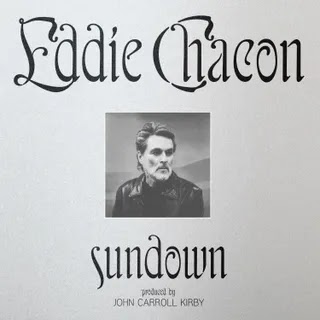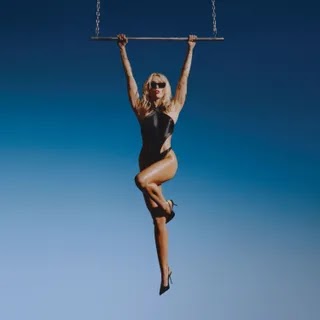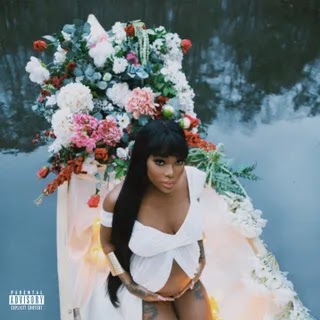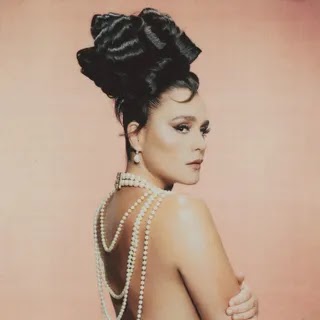Each Sunday, Pitchfork takes an in-depth look at a significant album from the past, and any record not in our archives is eligible. Today we revisit Erykah Badu’s 1997 debut, an existential anchor of the neo-soul movement.
While recording a demo in her hometown of Dallas in 1995, Erykah Badu found love in the simplicity of a rim shot. It’s a fundamental drum technique: the act of striking the metal edge and the head of a snare simultaneously to produce a full, explosive hit. To her, it was also a creative spark. Badu called up producer-songwriter Madukwu Chinwah, asked what “that tick-tock sound” was, and had him compose an entire rim shot-based rhythm for her. They made a song out of it, connecting the kick and the snare with the stimulating sensation of love: Boom. Clack. Boom. Clack: She made all her music this way, letting the groove lead her into streams of consciousness that became worldwide gospel.
Out of those demo sessions came her February 1997 debut, Baduizm, bookended by the original recording of “Rim Shot,” split into an intro and outro. The record went double platinum by summer and that year won the Grammy for Best R&B Album under the banner of a divisive new subgenre, neo-soul. Baduizm was an instant hit of intimate existentialism. It stripped the act of soul-searching down to its philosophical elements, mining abstract concepts like self-love, romantic love, and spirituality. There’s a throughline to albums like Solange’s 2016 opus A Seat at the Table, which similarly harnesses the power of Black music as a salve. They are full of control and surrender at the same time, confident in their search for answers even when there are none.
Badu’s musical style had roots in the smooth harmonies of ’80s groups like Mint Condition and Tony! Toni! Toné!, along with the early songs of Meshell Ndegeocello, but it wasn’t until the late ’90s that neo-soul crystallized into a subgenre with a foundational crew of rebels: D’Angelo, Maxwell, Badu, Jill Scott. Heralded as prodigies, they made lush serenades and instrumental jam sessions with a political center. Their musical and artistic identities affirmed the mutual bond between Black love and liberation. But in carving space for this retro sound, the music world presented neo-soul artists as saviors who were bringing R&B “back to basics,” which dismissed the innovation that was already driving the genre.
The truth is that, in 1997, R&B did not need any saving: Aaliyah’s music lived in the future. Mary J. Blige was turning anguish into hip-hop soul. And while artists from Usher to Brandy to Blackstreet added new-school bounce and flavor to the pop charts, neo-soul glimpsed back to a time when Marvin Gaye was crafting timeless soul out of divorce proceedings. The ensuing neo-soul era was illustrious, merging the familiar crackle of vinyl sounds with contemporary relationship angst. It was prestige R&B, with D’Angelo’s Brown Sugar (1995) and Maxwell’s Urban Hang Suite (1996) as prototypes. Still, the man who coined the neo-soul term, Universal executive Kedar Massenburg, knew even the acts he’d signed, including Badu, had rejected the label.
In many ways, the backlash was grounded in fear. Black musicians can be hyper-vigilant of the relative impermanence of their culture and wary of being boxed in. “Because, when you classify music, it becomes a fad, which tends to go away,” Massenburg told Billboard in 2002. Though he didn’t see neo-soul as a “marketing strategy,” it was just that: a way to repackage ’70s soul for the masses and train listeners to value live instrumentation and vocals over the computerized pop-R&B of that era. A 2002 Vibe essay described neo-soul as a “sublime paradox,” reflecting a common gripe at the time—“new soul” implied that soul had somehow died. Raphael Saadiq, one-third of Tony! Toni! Toné!, went so far as to call neo-soul “disrespectful,” though he recognized its intent. “I understand it for marketing reasons, I get that,” Saadiq told Billboard in 2002. “But people who really love music can’t respect that because it’s not new soul. You either have soul or you don’t.”
For Massenburg, the endgame was preservation. Neo-soul was helpful as a concept for the moment yet fleeting because Black music perpetually finds ways to escape time. Badu was always shape-shifting her way out of categorization, and Baduizm was the beginning of her decades-long ritual of reinvention. The album builds its ecosystem around her hoarse, cackling tone, which drew so many early comparisons to Billie Holiday that Badu’s publicist began asking interviewers to avoid the subject. Like Billie, Badu performed emotions that hit all corners of a room, her freeform scatting a product of jazz and blues. “More than Billie and I sound alike, I think we feel alike,” Badu said in 1997.
As a child of the ’70s, Badu grew up on Stevie Wonder, Marvin Gaye, and Chaka Khan. But more accurately, the locus of her sound was hip-hop. She was born Erica Wright in Dallas, two years before hip-hop emerged as a subculture. A young Erica started performing at age 2 on a recorder her grandmother taught her how to use, though she was only allowed to sing church songs. Both her mom, Kolleen Wright, and her grandmother were actresses. (Badu didn’t see much of her father, who was in and out of jail.) Badu’s first show was a first-grade play where she sang the novelty song “Nuttin’ for Christmas.” Around 7, she wrote her first song on a piano her grandmother bought her and then 20 more tunes in the first week.
Badu began interrogating big ideas when she attended a Catholic school. “I thought it was odd that we didn’t question what we were doing,” Badu said in a 2018 interview with Vulture. “What is this ‘blood of the lamb’? What does this mean? And whenever I would ask questions, I would either get manufactured answers or get in trouble for asking questions. I just thought I was not fit for society.” In reality, it was the best artistic vantage point and the genesis of Badu, the philosopher. Curiosity is the centerpiece of her work. She later studied dance at Booker T. Washington High School for the Performing and Visual Arts and majored in theater at Grambling State University before dropping out in 1993. Post-college, she taught dance and theater to a youth group, along with disciplines like yoga and breathwork. Her growing attraction to spiritual methods became the fabric for a body of work devoted to pursuing wisdom and healing. She actually practiced what she preached, then took her studies out on the road, exposing listeners to strange and deeper ways of thinking.
Between jobs, Badu performed in Dallas as a duo with her cousin Robert Bradford, aka Free, under the group name Erykah Free. Their earliest breaks were opening gigs for visitors like A Tribe Called Quest, Naughty by Nature, and D’Angelo. After completing a 19-song demo titled Country Cousins, the two began shopping their music to labels. From Bad Boy Entertainment to Priority Records, everyone, including Sean “Puffy” Combs, passed on signing them. Meanwhile, Badu did another performance at the Austin music festival South by Southwest, which she had been doing since she was 19. She’d changed her name from Erica to Erykah and later adopted the name Badu, after one of her stage riffs: “ba-du, ba-du,” which unbeknownst to her at the time, also meant “to manifest” in Arabic. A demo tape got back to Massenburg and he soon signed her to his Universal label, Kedar Entertainment, as a solo act in 1996.
One unlikely source of inspiration for Badu was her time spent working at Steve Harvey’s Comedy House, where she would play Lucille Ball to his Ricky Ricardo. During shows there she flowed like a rapper and was quick with a joke on the mic. Her humor lent Baduizm a distinctly light edge on tracks like “Afro (Freestyle Skit),” where she threatens to repossess the pager she gave a dude who’s dodging her messages. “Certainly” opens with a sparkle of keys that quickly blends into a trembling bassline as Badu reflects on a surprising new love with sly wonder: “Who gave you permission to rearrange me?” The song’s final note holds and travels effortlessly into the opening crescendo of “4 Leaf Clover,” a vigorous remake of Atlantic Starr’s 1983 hit “Touch a Four Leaf Clover.” It’s a welcome jolt at the album’s midpoint and a master class in vocal control. (It makes sense that Badu cited Brandy’s 1994 debut as a primary influence.)
Outside Texas, a generation of soul stars was cropping up in enclaves like Philadelphia, home of the Questlove-backed Roots, who’d just brought keyboardist/songwriter James Poyser into the mix. Working with Badu, they doused Baduizm with live instrumental flourishes on three tracks: “Afro (Freestyle Skit),” the scratchy lounge number “Sometimes,” and the sleek “Otherside of the Game,” about the dilemma of loving a drug dealer. The latter’s occasional horn stabs waft between rim shots as Badu submits, “Work ain’t honest, but it pays the bills.”
The album’s most transcendent moment, “Next Lifetime,” finds her at another crossroads, not above entertaining an illicit affair. The possibility of it hangs in the air and folds beautifully into the song’s woozy ambiance: “How can I want you for myself when I’m already someone’s girl?” Her solution is more divine than definite: She’d have to see him in another lifetime, maybe as butterflies, such a gorgeous way to use reincarnation as a send-off.
You could just sit and listen to Badu and get lifted if you wanted, but the path to true enlightenment required deeper engagement. “On and On” debuted when I was in eighth grade, where the girls in my chorus class ingested its cosmic mantras, having experienced only puppy love. “You rush into destruction ’cause you don’t have nothing left,” we sang anyway. We, too, picked our friends like we picked our fruits. Paired with the ease of bebop, Badu’s lyricism formed scriptures that were too self-aware to be sanctimonious. As a teacher, she had banter for days. “I work at pleasing me ’cause I can’t please you,” she asserts. There’s a moment in the middle of “Appletree” where she drags a line, as she does, like the most confident cigarette pull, and finishes her thought with a high wail: “I… can’t control the soul flowing in me. Ooh-wee.”
Badu has long been held up as an Earth Mother with an endless stash of sage and knowledge whose image resonated because she adhered to the lifestyle in the real world. This was, of course, an integral appeal of the neo-soul movement: the visual contrast between the authentic bohemian goddess and the glamorized R&B star. Badu brought African aesthetics and scholarship into the pop arena without flattening what they represented. There was a meaning behind the headwrap; the incense and candles she lit on stage; the numerology, derived from the Five Percent Nation (“Most intellects do not believe in God/But they fear us just the same,” Badu crooned in “On and On.”) At the same time, her music actively challenged bad politics and systems. She sounded not only informed but empathetic. And this is the same analog girl who later became a digital savant and a doula who sells out vagina-scented incense. But the current era of reckoning has revealed how some of hip-hop’s most radical thinkers have failed to confront retrograde ideals within their own generation. You could hear the record stop when Badu said schoolgirls should wear knee-length skirts or when she “saw the good” in Bill Cosby and Hitler. Turns out, there are limits to being theoretical versus pragmatic; it lifts the veil a bit off a musician known for both her social awareness and otherworldly mystique. Sometimes the teacher needs teaching.
But under the tenets of Baduizm, that’s how the world should work: an infinite exchange of ideas on our endless journeys of self-discovery. Life is a circle, and fittingly, Baduizm’s endpoint is its beginning: “Rim Shot.” By then, Badu has taken you on an odyssey. It’s a testament to her voice, purpose, and charisma that the album maintains intrigue through its latter half, anchored by musings like “No Love” and “Drama.” Amid subtle knocks, Badu rattles off a list of afflictions: “World inflation, demonstration, miseducation/No celebration to celebrate your lives.” Her follow-up, 2000’s Mama’s Gun, would organize these loose threads into an overtly political project with a less circuitous worldview. As Daphne Brooks wrote for Pitchfork, that record “offers a more pointed, sustained, and grounded statement.” Baduizm, though, set a mood and intention for decades to come, not only for Badu but for her future benefactors. The album positioned her as an artist in flux, immune to categories, whose career is proof of Black music’s ability to morph too quickly to ever be contained.
















0 comments:
Post a Comment